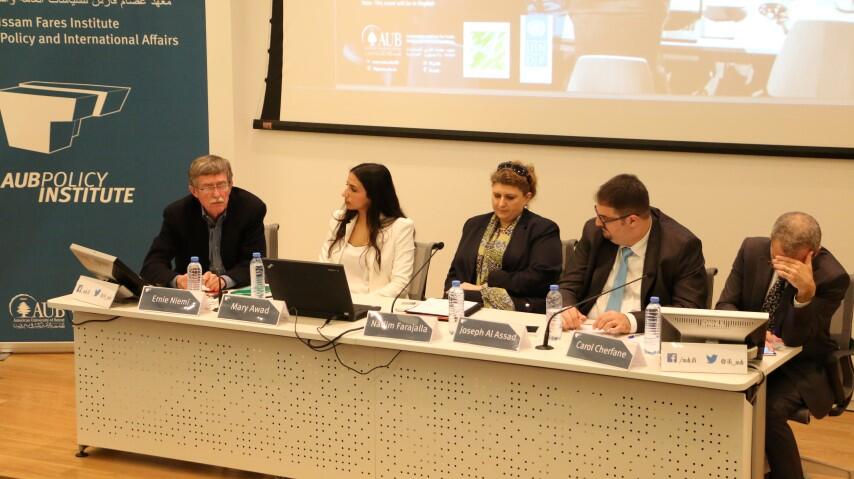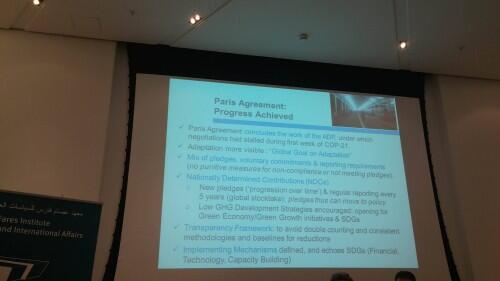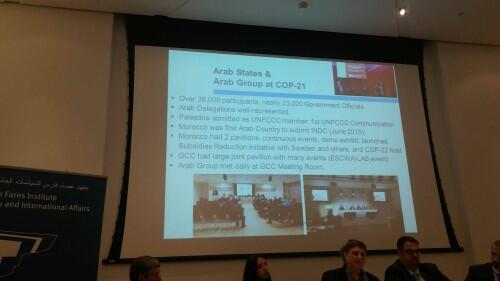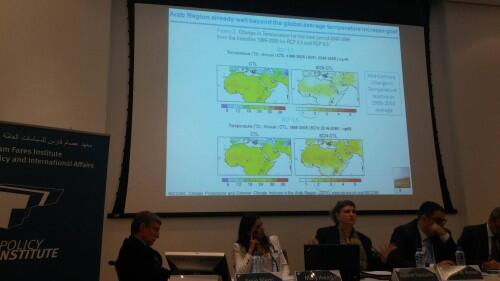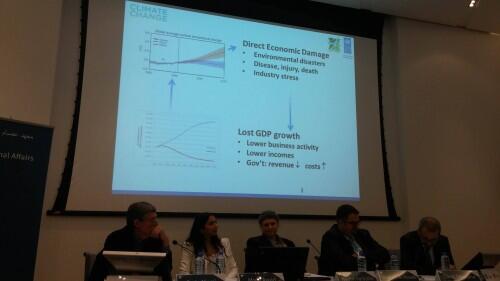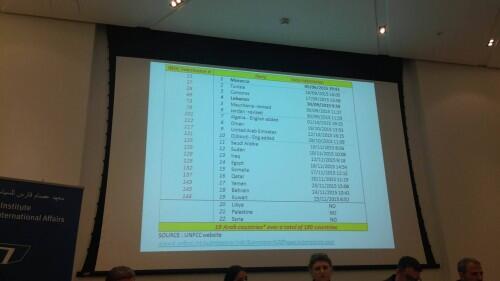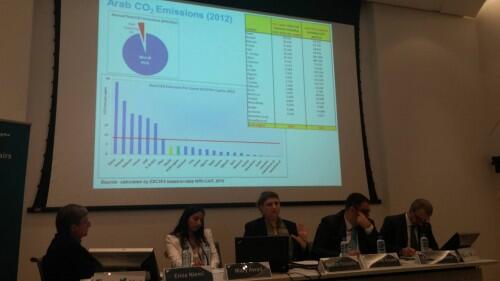After the adoption of the historic climate change agreement in Paris in December 2015, climate governance will witness several changes. What does the agreement mean to Lebanon and the region? What will the responsibilities and opportunities be for countries of the region? And what will be the agreement’s implications on the economy of Lebanon and the region? All these topics were tackled today at the Issam Fares Institute for Public Policy and International Affairs in the American University of Beirut (AUB), in collaboration with the Ministry of Environment and the UNDP.
Mary Awad, member of the UNDP climate change team at the Ministry of Environment, is one of the four members who highlighted the event. She is also a member of the Lebanese delegation to the United Nations Framework Convention on Climate Change. In an interview with greenarea.info, Awad said that “the Paris agreement has a great component on finance, and Lebanon relies on it very heavily”, adding that “part of Lebanon’s action plan will be funded nationally, and the private sector will be relied on a great deal”.
Financing
She also said that the means of implementation are not only financing, there’s capacity building and capacity transfer. However, she insisted that the private sector need capacity building on how to boost energy production in Lebanon.
The government of Lebanon is a bit understaffed, and needs more technical training. We rely on the Paris agreement to improve ourselves and become more independent.
Lebanon relies heavily on bilateral finance, not to forget the Paris agreement made sure that the developed countries pledged 100 billion dollars annually from now until 2025 to fund the climate plans.
On the other hand, Carol Chouchani Cherfane, Chief of the Water Resources Section, Sustainable Development Policies Division at ESCWA, Lebanon, said that the “the target to reach 1.5 as emission increases by the end of the century is not based on Science, but on politics”, revealing that “Arab countries’ emissions and contributions to climate change are marginal. We are producers but we are not consumers relative to the world. Gulf countries have a lot of work to do, but Lebanon is still at the world average.
Climate Change Affecting our Dreams??
Ernie Niemi, the president of Natural Resource Economics, Inc. which he established in 2012 and the author of the new study on the Economic Costs to Lebanon from Climate Change, told “greenarea.info” that “individuals and people in businesses are aware of climate change”.
What could be done? Niemi says that “climate change is really affecting everyone’s life, today and tomorrow”. Dr. Ernie’s words make us worry about our dreams even, which is an advantage as well, because it might drive us to act quicker and better.
Dr. Neimi added that “starting to put monetary values on how climate change is affecting people, in a monetary way especially, is very important”, adding that “the costs are a lot more than we have imagined. People want to do the right thing if they were informed of it.
Joseph Al Assad, an Energy consultant at the Ministry of Energy and Water in Lebanon, and a team leader at the Lebanese Center for Energy Conservation, said that “for the next five years, for achievable actions, we can lower the increase from 7% to 5%”, adding that “the ministry of Electricity is counting on the financing from the private sector and from international organizations”.
Let’s rely on our small acts then, and save our planet.

